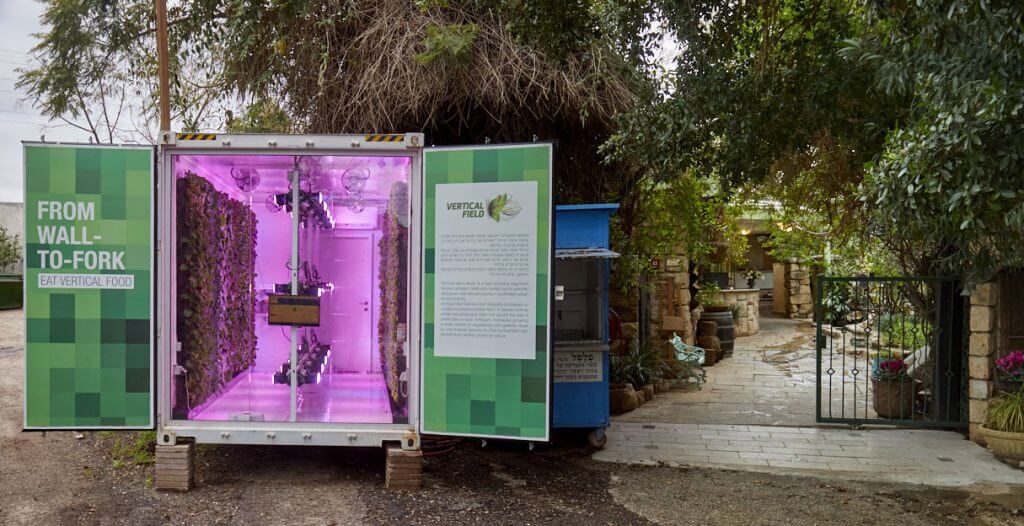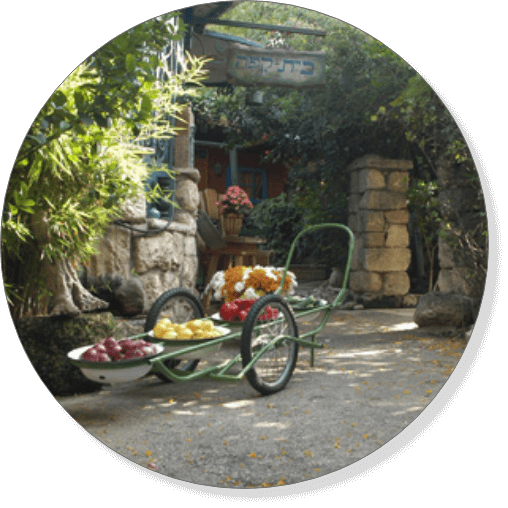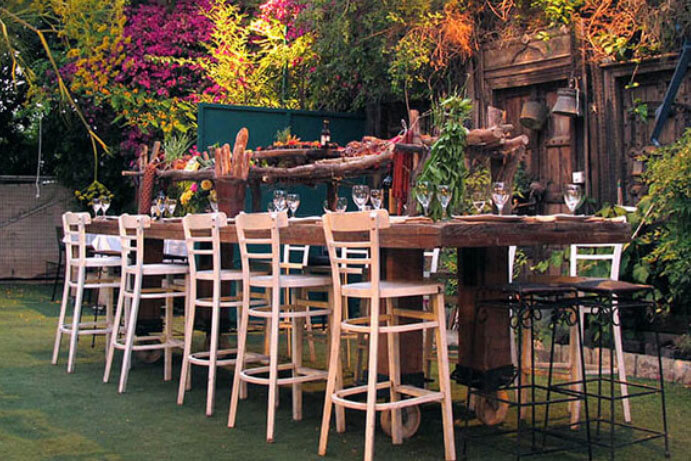Makom BaLev
Indoor Urban Farming For Restaurant Guests
Meet restaurateur and vertical farmer Haim Shestel. For his entire life, Haim Shestel has held a natural affinity toward plants and fresh food. It’s what spurred him to open up a farm-to-table restaurant and catering events center, Makom BaLev, in the heart of Ra’anana, a city on the outskirts of Tel Aviv, Israel.
Twenty-five years ago when Haim started the business, organic and all-natural food was not the trend. He genuinely believes eating freshly-farmed food is the healthiest, best way to live. Haim is an agronomist and a farmer who loves planting and growing; he has integrated his passion into his restaurant/catering center for perfect events.

The Challenge:
Facing Ingredient Logistics Costs and Complications of Year-Round Harvests, Packaging & Kosher Certification
Most restaurants in the area struggled to keep the business going with the high costs associated with kosher menu options. They also want to be able to provide tasty, fresh produce year-round, but it’s expensive to import or travel from great distances across the country and moreover, sometimes those produce items just weren’t available due to weather conditions. The restaurant would have to tailor its menu accordingly. For instance, in Fall 2019, extreme weather killed off the cauliflower and created a shortage. In addition, Makom BaLev faced problems such as the lengthy time spent cleaning the produce, packaging it, and dealing with the cost of kosher certification.
But what if it was possible to create a menu all year round with no weather and seasonal constraints? What if it was up to the usage of the restaurant to decide exactly how much to harvest, so there will be no waste? What if costs were decent to allow the restaurant to keep consistent pricing with no need to increase prices according to the farming conditions? What if operations could be more efficient minus weeding, insects, or pesticides?

The Solution:
Vertical Field’s Indoor Urban Farming - A Powerful Green Mix
Haim likes the fact that natural soil in the Vertical Field urban farm gives plants all its nutrition, light, air, and climate control. Since it’s a completely controlled environment, Haim removes risk of losing valuable crops from animal intrusion, pooling water, or foreign debris. What’s more, indoor urban farming has a shorter growing cycle than traditional farming.
For example, lettuce is harvested and re-planted almost every 22 days. In general, lettuce is considered a cool-season crop and requires distinct temperatures, day and night. Vertical Field’s urban farm creates optimal growing conditions.
In the growing urban farm, five types of lettuces are grown, including Salonova lettuce (both green and red), 2 curly lettuces (green and red), silk lettuce, basil, coriander/cilantro, parsley, chives, bok choy, kale, sorrel, and arugula. One side of the indoor farm is dedicated to a type of lettuce while the other side manages herbs or leafy greens. This way, Haim can harvest according to his customers’ needs ‒ even on-demand by purchase.

“It’s enlightening. It’s fun to see how young, energetic people from high tech still have an entrepreneurial spirit to create a better world with fresher food and a new approach to farming and healthier food. It’s great to be a part of the creation of a new farmer.”
Haim Shestel, Owner Of Makom Balev
Results:
Harvesting Fresh Greens Year-Round On-Demand.
- The process of growing was much shorter than traditional farming: 50 days in nature versus 22 days in the indoor urban farm.
- The produce is healthier and so much tastier.
- Guests get a unique experience as they can see the produce growing at the entrance of the restaurant
- Cost savings of more than 3 New Israeli Shekel, equivalent to ~ $1 USD/ lettuce
- Created a steady food supply under space-saving circumstances
- Gained control over the quantity and seasonality of produce
- Got fresh produce to the restaurant faster
- Harvested exactly what you need with no waste
For the future, the restaurant has endless options in terms of what it could grow for special salads and unique tastes. They’re considering what to plant for the next few seasons and planning ahead.




